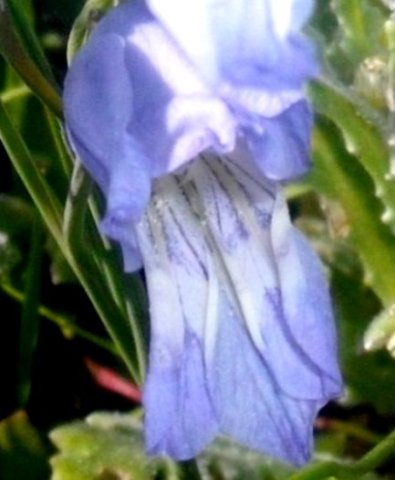Gladiolus gracilis

Author: Ivan Lätti
Photographer: Ivan Lätti
Gladiolus gracilis, commonly known in Afrikaans as the bloupypie (little blue pipe), is a cormous, deciduous perennial reaching heights annually between 25 cm and 60 cm. The corm has a strongly toothed, woody tunic.
The plant usually grows four stiff, linear leaves with the lowest the longest. The margins are prominently ridged, forming an H-shape in cross-section. The narrow leaves are about 2 cm wide.
The flowers growing on an erect or inclined, unbranched stem that is flexed outwards above the top leaf sheath. It is only 1 mm in diameter at the base of the flower spike that mostly bears two to five flowers. The flowers are usually very fragrant. The mostly blue flowers, pink, grey and yellow ones also occur, have dark streaks on the lower three tepals, often on a white patch background. Flowers are about 4 cm long. Flowering happens in winter to early spring.
The species distribution is in the far southwest of the Western Cape, from the Cape Peninsula to Saldanha and Riversdale. This plant was seen at the end of August in the Tinie Versfeld Wildflower Reserve.
The habitat is clayey lower slopes and flats. The habitat population is deemed of least concern early in the twenty first century (Goldblatt and Manning, 1998; Manning and Goldblatt, 1996; Bond and Goldblatt, 1984; iNaturalist; http://redlist.sanbi.org).

